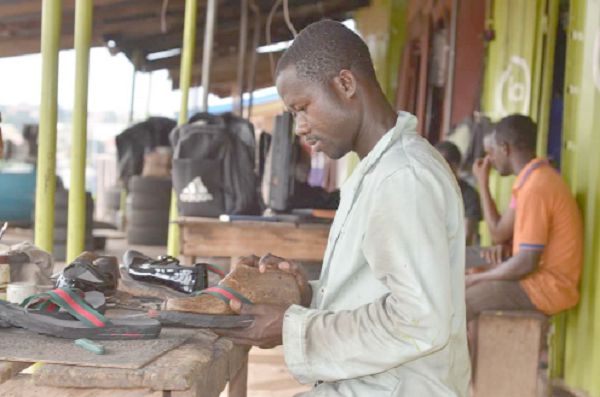
Asafo, Ashanti’s business hub
Asafo, one of the oldest communities in Kumasi, can become the game changer in the economy of the Ashanti Region and a beacon of hope for many unemployed youth, on the evidence of its booming printing and local footwear industry.
Virtually every house in the densely populated town has some kind of machine for either printing or photocopying.
And gradually, the youth, some of them school dropouts or known social deviants, are finding solace in employment in the book industry, believed to have been handed down from previous generations.
Their main focus, though, has been the printing of exercise books, posters and brochures.
But the main drivers of this local industry are graduates from the Kwame Nkrumah University of Science and Technology (KNUST) who fund the big contracts and projects because of their training and expertise.
But unlike the book industry, the footwear trade - which features shoes and slippers - is said to have blossomed only after the 1983 deportation of Ghanaians from Nigeria where the skill is believed to have been acquired.
Another account suggests that some returnees from Italy around the same period brought in the technique from the shoe factories.
"The history about the two businesses are scattered but I am more familiar with the Nigeria version," Mr Paul Anani Cudjoe of the Father's Printing Press told the Daily Graphic.
"I am told the shoe making business became popular after the 1983 deportation and the famine season because people had to survive.
There is a bit of truth in all these narrations because most of us turn to relate to them," Father, one of the veterans in the printing industry and a familiar face on the Asafo Graphic Road, added.
This industry is, however, dominated by manual expertise with only a few using machines.
Besides, the lack of capital appears a major challenge as the industry struggles to compete with foreign made goods.
"It is not a bad business. I buy the slippers for GH¢10 each and sell them for GH¢15 each.
The stress of looking for customers notwithstanding, it is better than stealing or being a commercial sex worker," Maa Bena, a dealer in locally made slippers, said.
The local footwear industry, led by the Kumasi Shoe Factory, which until recently was producing shoes for the security services, has come a long way.
